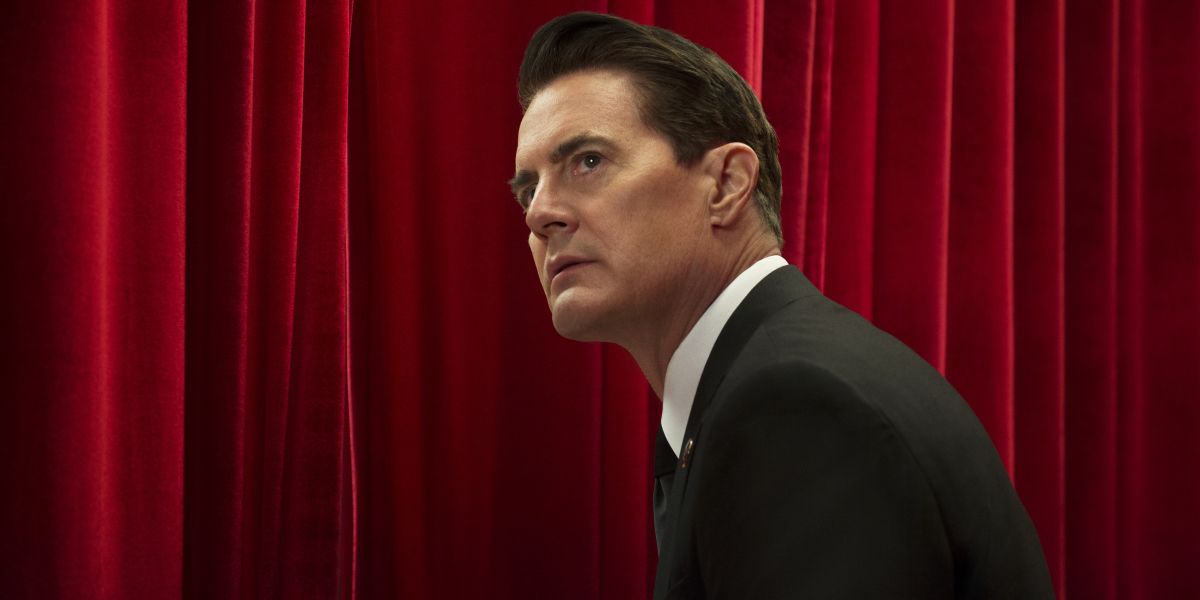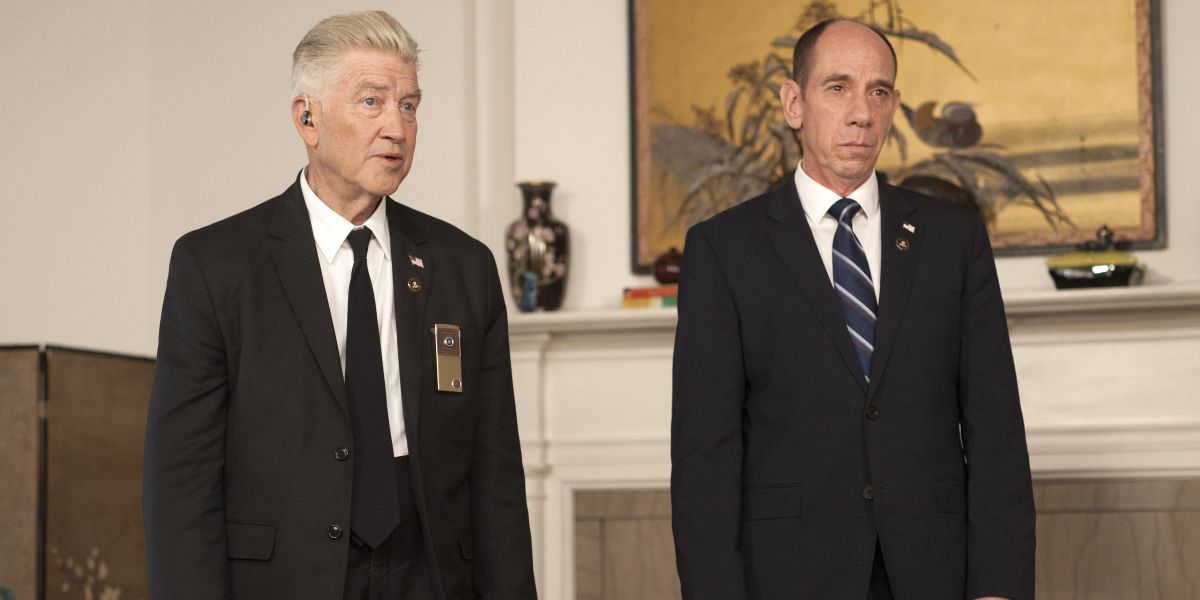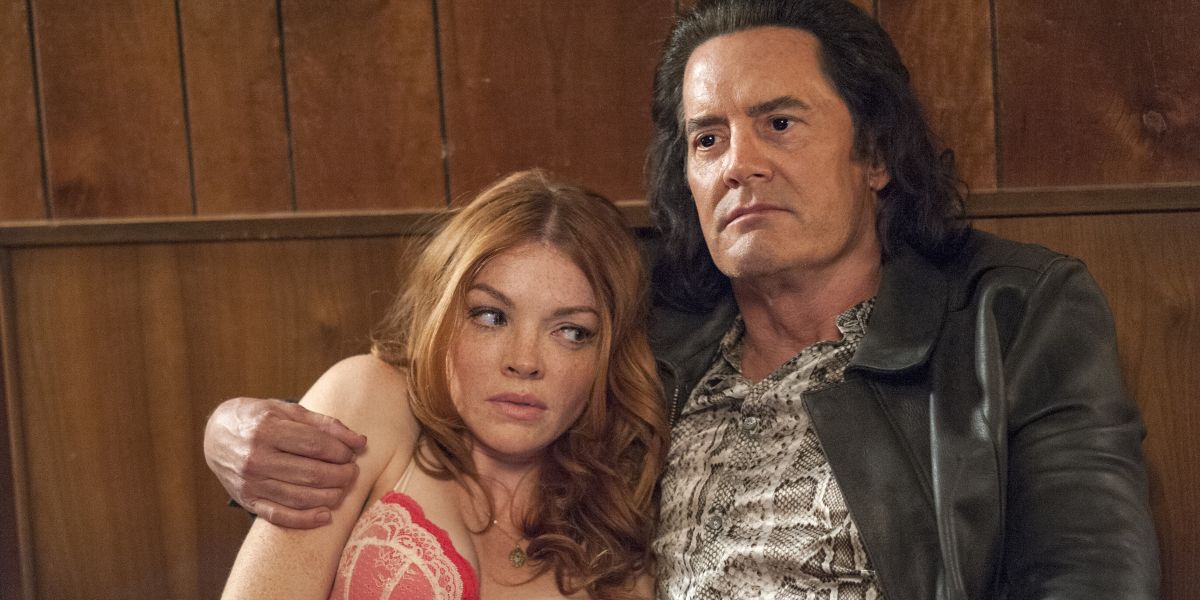After more than 25 years away, David Lynch and Mark Frost's strange and often wonderful Twin Peaks marks its return to television with an 18-episode event that's meant to play out like a very long movie cut into hour-long pieces. The premiere, which has been kept under wraps as everyone involved was sworn to secrecy and seems to have taken their part in the revival's maintaining an air of mystery very seriously, is a two-hour event, seen only by a lucky few just days before it dropped on Showtime.
The fervor over the series' return has as much to do with the fact that we know almost nothing about what Lynch and Frost intend to do with the next 18 hours, as it does with the almost immediate and immense cultural impact the original series had when it premiered on ABC in April of 1990. An enormous hit, the series' first season – which came in at an appropriate eight episodes – became one of the most fascinating things to ever happen on – or to – television. And the second season, well, that's something of a mixed bag. At 22 episodes long, Twin Peaks season 2 seemed to run out of steam at around the halfway point, digressing into a multitude of tangents that included haunted drawer knobs, psychotic FBI agents, and a fascinatingly anachronistic – even by 1991 standards – town beauty pageant that seemed to frustrate more than fascinate for the inscrutability and surrealism that has become the signature of David Lynch's art.
And yet, despite the odd asides, seemingly incongruous tangents and non-sequiturs, not to mention its reputation for having frustrated a portion of its audience, the series remains a fascinating part of popular culture that, like so much of Lynch's work remains wondrously impenetrable and indefinable. That is unless you subscribe to using the term "Lynchian," an equally definition-resistant word that tends to exude a feeling or allude to an indecipherable quality as a welcome invitation to interpretation rather than a call for explainers. It is that aspect of the show, and of Lynch's work at large, that makes this Return such a fascinating prospect.
That's saying nothing of how the series came to an end in 1991, leaving viewers with an image of Kyle MacLachlan's Agent Dale Cooper seemingly possessed by the demonic spirit Bob – the very one that supposedly possessed Leland Palmer and drove him to kill his daughter Laura, kicking the entire series into motion – after an hour of frightening surrealism in a place called the Black Lodge and where a Laura Palmer lookalike promised Cooper a return of sorts in 25 years. And just over 25 years later, here we are.
26 years is a long time, which means Lynch and Frost have had ample opportunity to work out how they want to present the next 18 hours of their creation. From the look of the first two hours, the lack of urgency to spell out exactly what happened to Agent Dale Cooper the last time he was seen smashing his face into a bathroom mirror and smiling maniacally at the camera suggests the two have a far more expansive story line in mind; one that must go far beyond the limits of Twin Peaks in order to bring everyone back to the little town in the Pacific Northwest with so many dark secrets. In fact, it almost feels as though Lynch and Frost are deliberately going out of their way to avoid Twin Peaks altogether, choosing instead to see a good chunk of the strange yet wonderful story unfold in South Dakota, as another murder sends shockwaves through a similarly small community.
There's a deliberate mirroring of the events of the first season of Twin Peaks. Matthew Lillard's Bill Hastings is a Leland Palmer type and the murder he's accused of committing appears as though it was the work of Bob inhabiting his body – just like what happened to Leland when he killed Laura and her cousin. The similarities in the case extend to the setting as well: a small town that has its fair share of soap opera-level melodrama roiling just beneath the surface. And as Lynch demonstrates so effectively through a protracted bit regarding a nosey neighbor, a bad smell, two incredibly patient cops, and a missing key, there's plenty of droll humor too. The early introduction may be light on the original Agent Cooper, but the charm of the original Twin Peaks is certainly present and accounted for.
And in the first two hours, Twin Peaks: The Return also demonstrates just how comfortable Lynch is returning to the director's chair after spending so much time creating smaller projects after Inland Empire in 2006. Here, he pivots effortlessly between conflicting tones and sub-genres, as both episodes shift from horror to comedy to police procedural to campy melodrama without skipping a beat. The early segment where Sam and Tracey are mauled to death by a figure resembling a film negative encased in black smoke could be read as a perfect metaphor for television viewers waiting for Twin Peaks to return without remotely knowing what they're getting into. A chaste romance suddenly turns passionate before unexpectedly turning horrifically violent. Twin Peaks obsessives have been waiting for the box to come to life with Agent Cooper once again inside, and while we got our wish, we also got everything that comes along with the package deal that is David Lynch's surrealistic filmmaking.
It's been so long since Lynch has made a feature film (or worked in television) that all the hype surrounding the return of Twin Peaks may have repressed some memories of just how much his work can test the audience's patience. That tormenting is sometimes baldly deliberate, like how the season 2 opener featured a protracted exchange between a mortally wounded Cooper and an elderly bellhop, seemingly incapable of grasping the gravity of the situation. The same is true for the first two hours of The Return. The South Dakota sequences felt at times like a Twin Peaks pastiche with pieces of an unproduced pilot episode being stitched together to make this revival possible. The same goes for Sam and Tracey's fate, as the mysteriousness of Sam's job and its connection to the Black Lodge and Cooper went on for what seemed like ages.
Those issues aside, it's difficult to complain when you're staring at the start of an 18-hour David Lynch project. Even when his artistic impulses seem to take viewers on the road to nowhere, the trip getting there is usually more fascinating than most of the destinations you'll find anywhere else. This time around, however, it seems to be moving toward a plot centered on the mystery of Dale Cooper's disappearance and what his doppelganger's been doing for the last two-and-a-half decades. It's probably a good idea to resign yourself from the thought of getting concrete answers, but that was never really the point of watching Twin Peaks to begin with. It's about the unmistakable feeling you get from watching a piece of Lynch's work. It's oftentimes baffling, but it's also thrilling just the same.
Next: Twin Peaks: Everything You Need To Know Before Season 3
Twin Peaks returns next Sunday @9pm on Showtime. Episodes 3 and 4 are available for subscribers on the Showtime On Demand app immediately following the premiere.
Photos: Showtime



